Solar That Thrives in Humidity

As the world heats, it traps more moisture in the air - about 7 percent more per 1°C of warming according to scientists. While heat can limit a panel's power, corrosion from moisture can cause degradation and failure of Conventional panels. Moisture in the air attacks the thin lines of metal paste on the front of a Conventional solar cell. The cells in Maxeon solar panels, on the other hand, feature a unique tin-plated copper foundation that protects against breakage, while making them nearly impervious to humidity and corrosion.
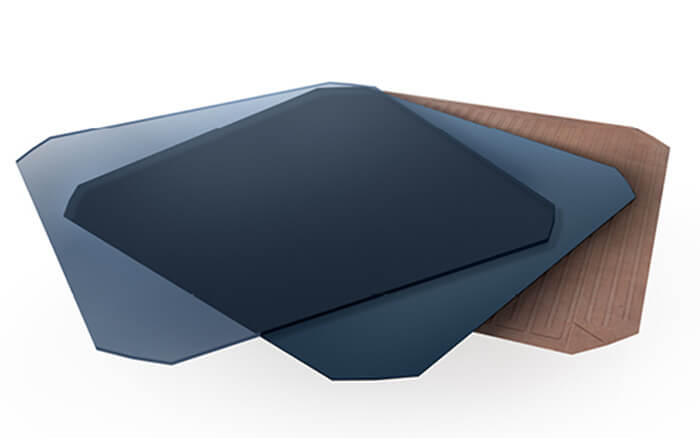
Maxeon solar cells have a unique metal foundation that protects against corrosion and breakage.
Standing behind these product design advantages is a solid 25-year warranty that covers installations in coastal regions. Many conventional solar panel manufacturers have warranty exceptions for coastal environments. Maxeon panels are an excellent choice for these regions, and are favored by commercial customers in coastal areas.
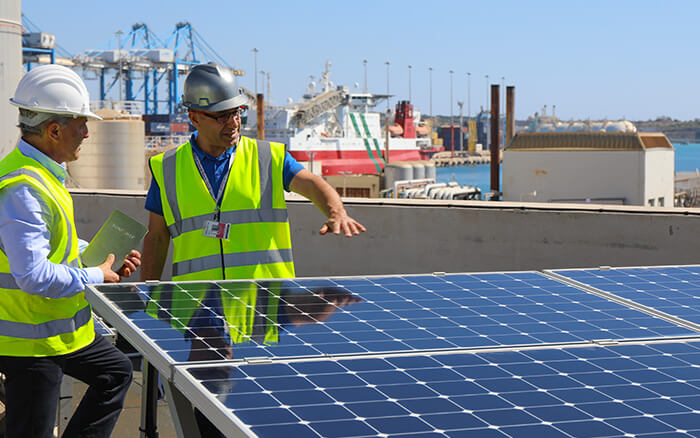
Malta-based Oiltanking Ltd has outperformed expectations despite harsh coastal conditions including sea air.
Tested Inside and Out
The test shown below is designed to accelerate corrosion in a calibrated laboratory chamber. Standard certification requires that panels be exposed to 85°C and 85% relative humidity for 1,000 hours. Independent testing shows that even high-tier conventional panels are susceptible to corrosion.2 2021 PVEL PV Module Reliability Scorecard, https://modulescorecard.pvel.com/
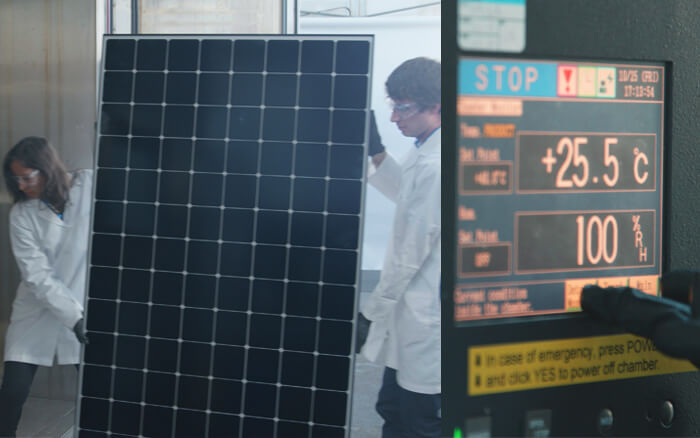
The Damp Heat test exposes panels to thousands of swings between -40°C and +85°C, all at 85% humidity. Maxeon Solar Technologies surveys power before and after the test to confirm panel performance in humid environment.
Maxeon Solar Technologies tests its Maxeon line panels for 7x the industry standard. Even with the additional exposure, the tin-plated copper on the rear of Maxeon cells is nearly impervious to humidity, showing negligible power loss.3 PVEL Test Reports R671F1 and R671H1.
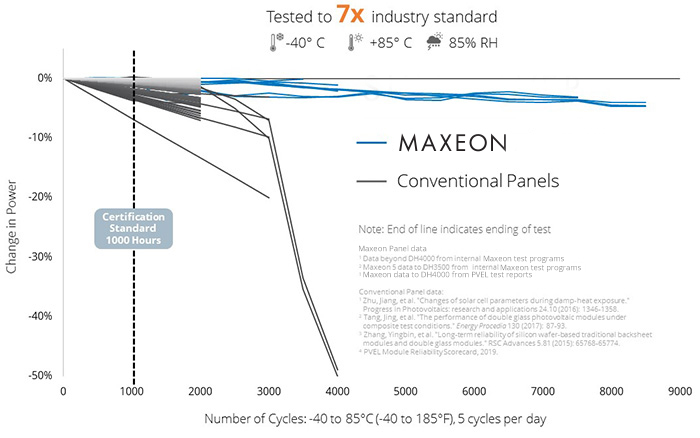
Proven in the Field
A recent independent test in Taiwan measured the energy performance of the Maxeon panel versus expectation, a concept known as 'energy yield'. When compared to other panels on the same site for one year, Maxeon panels demonstrated a 5% energy yield advantage despite an average max temp of 27°C and 78% relative humidity. And, as the chart shows, the Maxeon panel’s yield advantage over Conventional Panels only grew as the temperature climbed.4 PV Insight 2019
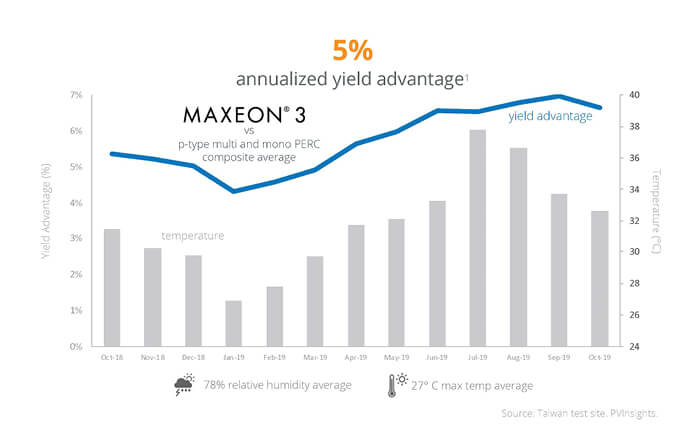
Extreme weather patterns might be the new normal. But Maxeon Solar Technologies is committed to the continued innovation of our technology. Just as our customers stand up to climate change, our panels are designed to stand up to harsh conditions. Together, we can make a difference in the fight against a warming planet.
 US
US